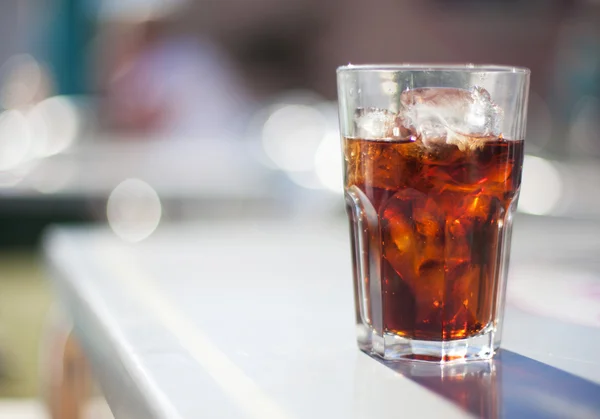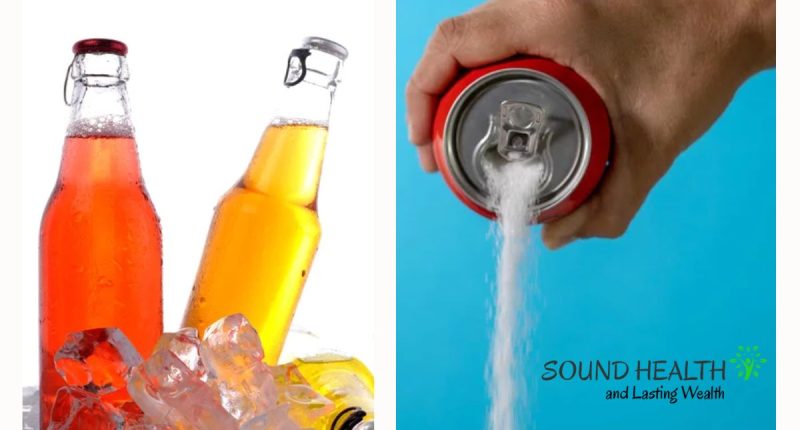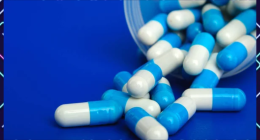Sugary sodas and fizzy drinks provide temporary pleasure while being high in added sugar and empty calories. It has also been linked to a number of negative health effects, including:
1. Weight Gain
Weight gain occurs when the number of calories consumed exceeds the number of calories burned through physical activity. Because soda is high in sugar and empty calories, it can easily tip the scales in favor of weight gain.
A 12-ounce can of regular soda contains approximately 140-150 calories and up to 40 grams of sugar – the equivalent of approximately 10 teaspoons! Just one can per day adds nearly 1000 calories to your weekly intake.
Sugar is the primary culprit in the link between soda consumption and weight gain. Soda’s high added sugar content contributes to increased calorie intake while providing no nutritional value.
Moreover, studies have shown that consuming sugary drinks like soda does not make us feel full or satisfied like solid foods do. This means that even after drinking a can of soda, we are more likely to continue eating and consuming more calories. This calorie surplus contributes to weight gain over time.
Aside from its high sugar content, soda also lacks other essential nutrients found in whole foods. This means that people who consume a lot of soda may be missing out on important vitamins, minerals, and antioxidants that are necessary for maintaining a healthy weight and metabolism.
Furthermore, the link between soda consumption and weight gain is even stronger in children and adolescents. A study published in The American Journal of Clinical Nutrition found that each additional serving of sugary drinks per day increases a child’s chance of becoming obese by 60%. This is alarming as obesity in childhood has been linked to numerous health problems later in life.
2. Tooth Decay
Tooth decay also known as dental caries or cavities, is one of side effects of sugary soda and a common oral health problem that affects people of all ages. It happens when bacteria in the mouth digest sugars from food and drinks, producing acids that attack and weaken tooth enamel. This can result in the formation of small holes or cavities in the teeth over time.
While good oral hygiene practices like brushing and flossing on a regular basis can help prevent tooth decay, one frequently overlooked factor is the consumption of sugary drinks. Not only sodas, but also other popular beverages such as energy drinks, sports drinks, fruit juices, and even flavored water, are included.
Sugary drinks are a major contributor to tooth decay because they contain high levels of sugar which provide an ideal environment for bacteria to thrive in the mouth. The more sugar you consume, the more acid is produced by these bacteria, leading to faster enamel erosion and a higher risk of developing cavities.
DON’T MISS: Tooth decay treatment: Fluoride to be added to drinking water to get rid of tooth decay
3. Heart Disease
An increased risk of heart disease is one of the most concerning health risks associated with soda consumption. According to a study published, consuming just one sugary drink per day was linked to a significant percentage increased risk of developing cardiovascular disease. This is due to the high sugar content of soda, which can lead to weight gain and obesity, both of which are major risk factors for heart disease.
4. Type 2 Diabetes
Another alarming concern related to soda consumption is its link to diabetes. The high amount of added sugars in sodas causes a spike in blood sugar levels, leading to insulin resistance over time. This means that your body becomes less effective at using insulin to regulate blood sugar levels, ultimately increasing your chances of developing type 2 diabetes. In fact, a study conducted by Harvard University found that individuals who consumed one or more sugary drinks per day had an 83% higher risk of developing type 2 diabetes compared to those who rarely consumed these beverages.
5. Cancer
Research has shown that sugary soda drinks are linked to an increased risk of cancer. For example, a large study published in the journal BMJ found that people who drank one or more sugary drinks per day had an 18% increased risk of overall cancer and a 22% increased risk of breast cancer.
Another study, published in the journal JAMA Oncology, found that people who drank two or more sugary drinks per day had a 46% increased risk of liver cancer.
The link between sugary soda drinks and cancer is thought to be due to a number of factors, including:
- Excess weight gain: Sugary soda drinks are high in calories and can contribute to weight gain. Obesity is a major risk factor for many types of cancer, including breast cancer, colon cancer, and endometrial cancer.
- Inflammation: Sugary soda drinks can promote inflammation in the body. Inflammation is thought to play a role in the development of cancer.
- Insulin resistance: Sugary soda drinks can lead to insulin resistance, a condition in which the body’s cells become less responsive to the hormone insulin. Insulin resistance is thought to increase the risk of certain types of cancer, such as liver cancer.
- High blood sugar levels: Sugary soda drinks can raise blood sugar levels. High blood sugar levels can damage DNA and increase the risk of cancer.
In addition to these factors, sugary soda drinks may also contain other substances that are linked to cancer, such as artificial sweeteners and food dyes. Read more about cancer and foods that cause the condition
6. Liver Fat
One of the factors that can contribute to the accumulation of liver fat, a condition known as non-alcoholic fatty liver disease (NAFLD) is sugary soda drink.
NAFLD occurs when excess fat builds up in the liver cells of individuals who consume more calories than their bodies can effectively process. High-sugar sodas contain a significant amount of fructose, which can be particularly problematic for the liver when consumed in excessive amounts.
According to a study, published in the journal Hepatology, people who drank one or more sugary drinks per day were 56% more likely to have NAFLD than those who did not drink sugary drinks.
In another study by the journal Gastroenterology, people who drank two or more sugary drinks per day had a 2.25-fold increased risk of NAFLD than those who did not drink sugary drinks.
7. Belly Fat
The type of fat that accumulates around the organs in the abdominal cavity is known as belly fat or visceral fat. Belly fat is especially dangerous because it has been linked to a number of health problems. Sugary soda drinks have been linked to an increased risk of belly fat, according to research.
One study found that people who drank one sugary drink per day had a 27% greater increase in belly fat volume over six years than those who did not drink sugary drinks.
To support the first claim, another study discovered that people who drank two or more sugary drinks per day had a higher risk of having excess belly fat than those who did not.
8. Insulin Resistance
Sugary soda drinks can cause insulin resistance, a condition in which the body’s cells become less responsive to the hormone insulin.
Insulin is a hormone that helps the body’s cells absorb glucose, or sugar, from the bloodstream.
When the body’s cells become resistant to insulin, glucose levels in the bloodstream can rise.
Moreover, evidence-based research has shown that people who drink sugary soda drinks regularly are more likely to have insulin resistance.
Sugary soda drinks are high in fructose, a type of sugar that is metabolized by the liver. When the liver processes too much fructose, it can turn into fat and build up in the liver. This fat can then spill out of the liver and into the bloodstream, where it can damage cells and tissues. This damage can lead to insulin resistance.
In addition, sugary soda drinks can promote inflammation in the body. Inflammation is thought to play a role in the development of insulin resistance.
9. Zero Essential Nutrient
Sugary soda drinks are empty calories, meaning they provide energy but no essential nutrients. Essential nutrients are substances that the body cannot produce on its own and must obtain from food. There are 13 essential vitamins and 16 essential minerals.
Sugary soda drinks are typically made with carbonated water, sugar, and artificial flavorings. They may also contain other ingredients, such as caffeine, food dyes, and preservatives. None of these ingredients are essential nutrients.
In fact, sugary soda drinks can actually displace nutrient-rich foods from the diet. When people choose to drink sugary soda drinks instead of water, milk, or other nutritious beverages, they are missing out on important vitamins, minerals, and other nutrients that are essential for good health.
10. Leptin Resistance
Experts found that people who drink sugary soda drinks regularly are more likely to have leptin resistance.
Leptin is a hormone that is produced by fat cells. It helps to regulate appetite and energy metabolism. Leptin resistance is a condition in which the body’s cells become less responsive to leptin. This can lead to weight gain and obesity.
Sugary soda drinks can cause leptin resistance in a number of ways. First, sugary soda drinks are high in fructose. Fructose is a type of sugar that is metabolized by the liver. When the liver processes too much fructose, it can turn into fat and build up in the liver. This fat can then spill out of the liver and into the bloodstream, where it can damage cells and tissues. This damage can lead to inflammation and leptin resistance.
Second, sugary soda drinks can promote inflammation in the body. Inflammation is thought to play a role in the development of leptin resistance. Inflammation can cause the body’s cells to become less responsive to leptin.
Third, sugary soda drinks can cause weight gain. Weight gain is a major risk factor for leptin resistance. When people gain weight, their fat cells produce more leptin. However, over time, the body’s cells can become less responsive to leptin, leading to leptin resistance.
11. Addiction
Sugary soda drinks can be addictive for a number of reasons.
- Sugar: Sugar is a highly processed food that can trigger the release of dopamine, a neurotransmitter that is associated with pleasure and reward. This can lead to cravings for more sugar.
- Caffeine: Many sugary soda drinks contain caffeine, a stimulant that can increase alertness and energy levels. Caffeine can also be addictive, and it can make people feel like they need more soda to maintain their energy levels.
- Carbonation: The carbonation in sugary soda drinks can create a tingling sensation on the tongue that some people find pleasurable. This can also lead to cravings for more soda.
- Taste: Sugary soda drinks are often designed to be very sweet and flavorful. This can make them appealing to people of all ages, and it can lead to cravings for more soda.
Adding to these factors, sugary soda drinks can also be addictive because they are often marketed and consumed in social settings. For example, people often drink soda at parties, sporting events, and other social gatherings. This can lead to positive associations with soda and make it more likely that people will crave it.
Over time, drinking sugary soda drinks regularly can lead to changes in the brain that make it more difficult to control cravings and resist the temptation to drink more soda. This can lead to addiction.
12. Stroke
Consuming sugary soda drinks is not a direct cause of stroke, but there is evidence to suggest that excessive consumption of these beverages may contribute to an increased risk of stroke indirectly through various mechanisms. Stroke is a complex medical condition with multiple risk factors, and diet is just one piece of the puzzle. Some of the risk factor are;
- High blood pressure
- High cholesterol
- Diabetes
- Obesity
- Inflammation
- Dehydration
Sugary soda drinks may also contain other ingredients linked to stroke, such as caffeine and food dyes, in addition to these risk factors.
Research has shown that people who drink sugary soda drinks regularly are more likely to have a stroke. For example, one study found that people who drank two or more sugary soda drinks per day had a 31% higher risk of stroke than those who drank less than one sugary drink per week.
13. Gout
Gout is a type of arthritis that occurs when uric acid crystals build up in the joints. Uric acid is a waste product that is produced by the body when it breaks down purines, substances that are found in certain foods and drinks.
Sugary soda drinks are high in fructose, a type of sugar that is metabolized by the liver. When the liver processes too much fructose, it can produce uric acid. Sugary soda drinks may also contain purines themselves.
That’s not all, sugary soda drinks can contribute to weight gain, which is a risk factor for gout. Weight gain can increase the amount of uric acid that the body produces and make it more difficult for the body to excrete uric acid.
14. Dementia
One of the symptoms of drinking too much soda is dementia. Sugary soda drinks have been linked to an increased risk of dementia, including Alzheimer’s disease. Dementia is a broad term for severe loss of memory, language, problem-solving, and other thinking abilities that interfere with daily life. The most common type of dementia is Alzheimer’s disease.
Tips to Quit Drinking Sugary Soda

- Start by gradually reducing your intake of sugary soda. For example, if you currently drink two sugary soda drinks per day, try reducing your intake to one per day for a week. Then, try reducing your intake to every other day, and so on.
- Choose water, unsweetened tea, or coffee instead of sugary soda drinks. You can also choose smaller portion sizes of sugary drinks if you do choose to drink them.
- Avoid social settings where sugary soda drinks are typically consumed. If you do attend social gatherings where soda is being served, try to bring your own water or unsweetened beverage.
- Talk to your doctor or a registered dietitian. They can help you develop a plan to quit drinking sugary soda and improve your overall diet.
Quitting sugary soda drinks can be challenging, but it is worth it for your overall health. By following these tips, you can gradually reduce your intake of sugary soda and eventually quit drinking it altogether.
Alternatives to Sugary Soda Fizzy Drinks

with the growing awareness of the negative health effects associated with soda consumption, many people are looking for alternatives to satisfy their thirst and cravings. Fortunately, there are plenty of options that can provide a refreshing and flavorful alternative to soda without the harmful side effects. In this section, we will explore some of the best alternatives to soda that you can incorporate into your daily routine.
Sparkling Water
Sparkling water is an excellent substitute for soda as it provides the same fizzy sensation without any added sugars or artificial sweeteners. It comes in a variety of natural flavors such as lemon, lime, and grapefruit, making it a tasty choice for those who enjoy fruity sodas. Additionally, sparkling water also offers hydration benefits without any calories or caffeine.
Kombucha
Kombucha is a fermented tea drink that has gained popularity in recent years due to its numerous health benefits. This fizzy drink contains probiotics and antioxidants that promote gut health and boost your immune system. It also comes in various flavors like ginger, raspberry, and peach which makes it a delicious alternative to traditional sugary sodas.
Fruit Infused Water
Plain water may seem boring compared to sweet sodas but adding slices of fresh fruits like strawberries, lemons or oranges can transform it into a tasty and healthy drink option. Not only does fruit-infused water add flavor but it also provides essential vitamins and minerals without any added sugars or artificial ingredients.
Green Tea
Green tea is a popular beverage that is known for its numerous health benefits. It contains antioxidants and polyphenols that can boost your metabolism, reduce inflammation, and lower the risk of chronic diseases. It also comes in different flavors such as mint, lemon, and peach which can satisfy your taste buds without the sugar rush of soda.
Coconut Water
For those who love the sweet taste of soda, coconut water can be a great alternative. It is naturally sweet but contains much less sugar than soda. It also provides electrolytes that can hydrate your body and replenish essential nutrients lost during physical activity.
Herbal Tea
Herbal teas come in various flavors like chamomile, peppermint, and hibiscus which makes them a refreshing substitute for soda. They are caffeine-free and packed with antioxidants, making them a healthy choice for both hydration and relaxation.
Vegetable Juice
Vegetable juices like carrot juice or beetroot juice may not sound as appealing as soda but they offer many health benefits that make them worth considering as an alternative drink option. They are rich in vitamins, minerals, and phytonutrients that promote overall health and well-being.
Flavored Milk
For those who love creamy drinks, flavored milk can be a great alternative to soda. It is rich in calcium and protein which makes it a nutritious choice for both children and adults. You can also opt for lower-fat options like almond milk or soy milk if you are watching your calorie intake.
In conclusion, while soda may be a popular beverage choice, there are plenty of alternatives that can provide the same refreshing taste without the negative health effects. Experiment with different options to find the one that suits your taste buds and lifestyle best. Remember to always read labels and choose options with minimal added sugars and artificial ingredients for optimal health benefits.
Frequently Asked Questions (FAQs)

Q: How much sugary soda is safe to drink?
A: The American Heart Association recommends that adults consume no more than 6 teaspoons (24 grams) of added sugar per day for women and 9 teaspoons (36 grams) per day for men. Children should consume even less added sugar. A single 12-ounce can of sugary soda contains about 39 grams of sugar, so it is easy to exceed the recommended daily intake by drinking just a few cans of soda per day.
Q: Can you drink diet soda while fasting?
A: Whether or not you can drink diet soda while fasting depends on your fasting goals. If you are fasting for religious reasons, you may need to consult with your religious leader to see if diet soda is allowed. If you are fasting for health reasons, such as to lose weight or improve your metabolic health, then it is generally best to avoid diet soda while fasting.
Q: Can you drink diet soda while pregnant?
A: Some experts believe that diet soda is safe to consume during pregnancy, while others believe that it is best to avoid it. There is some evidence that suggests that diet soda may be linked to an increased risk of certain health problems in pregnant women, such as preeclampsia and gestational diabetes. However, more research is needed to confirm these findings.
Q: Can you drink soda with braces?
Yes, you can drink soda with braces, but it is not recommended. Soda is high in sugar and acid, which can damage your teeth and braces. Sugar can lead to cavities, and acid can erode your tooth enamel. Braces can make it difficult to clean your teeth thoroughly, so drinking soda can increase your risk of developing dental problems. If you do choose to drink soda with braces, use a straw, drink enough water afterward, and brush more than once a day.
Note: This article is written based on scientific evidence found by the soundhealthandlastingwealth.com team. Sources are duly referenced with keywords hyperlinked to source websites and are clickable for reference.








